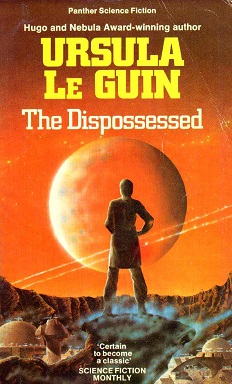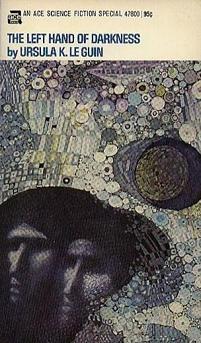
The Dispossessed
Ursula K. LeGuin
319 pages
published in 1974
After the Earthsea trilogy and of course The Left Hand of Darkness, The Dispossessed is arguably Ursula LeGuin’s most famous novel. It was one of a small group of novels in the early seventies –including e.g. Joanna Russ’ The Female Man that took the American New Wave and science fiction as a whole into a much more explicit political direction. It’s a novel that’s still controversial today, or at the very least can still lead to heated debates. The Dispossessed has been hugely influential in radicalising whole generations of fans, while there are plenty of conservative science fiction fans for whom its is a symbol of everything that went wrong with science fiction in the seventies.
The Dispossessed, firmly in the utopian tradition of Herland and looking Backward is a travelogue, set on the double planets of Urras, stand-in for seventies America and Anarres, the “ambiguous utopia” of the subtitle. The protagonist Shevek is a brilliant young physicist whose passion for science leads him to travel from his anarcho-syndicalist home planet to Urras because there he hopes to find the support he needs to finish his thesis. In alternating chapters we get to see his journeys to and on Urras as well as his upbringing and life on Anarres.
